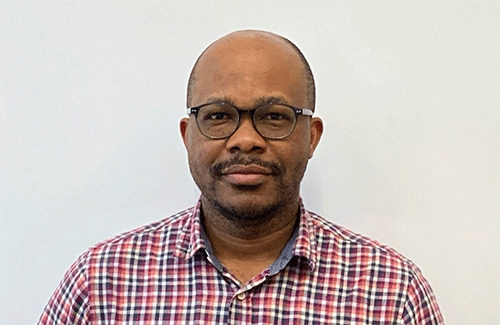My objective in this article is threefold. First, to present my perspective of why the research capacity in Africa is currently weak in general and particularly poor within the land governance arena. Second, to show why improved research capacity in land governance (that is, the politics of land channelled towards the benefit of all citizens) is essential for the development of Africa. And third, offer ideas on how to improve the situation going forward.
Scientific research involves investigative procedures to find new outcomes that promote human knowledge in a particular subject. This requires resources, including funds, skills, materials, specialist knowledge, and appropriate dissemination of research outcomes. Doing research to create impact requires capacity — that is, the individual and institutional ability to conduct and publish research. Research capacity across the world varies from continent to continent and country to country. This is due to differences in skilled personnel, funding; and infrastructure for teaching, performing, and publishing research. ‘SCImago Journal and Country Rank’, a publicly available portal that includes the journals and country scientific indicators developed from the information in the most reputable scientific database, yearly ranks countries and continents according to their research outputs. Africa always appears at the bottom of the league table.
It is essential to take a deeper look at the current state of scientific research in Africa. A survey done by the African Capacity Building Foundation (ACBF) indicates that about 40-80% of Africa’s science and technology innovation publications come mainly from the health and agricultural sciences. Noteworthy is that these research are done with external partners — usually the international donors who have an institutional interest in these areas. Scientific enquiries from the various land-related disciplines (including spatial planning, geodesy, land management, etc.) are still highly under-researched. Again, even the paltry outputs from these areas are mainly from researchers who depend on external collaborations worldwide, especially from the Global North.
The ACBF survey shows that collaborations between African scholars in Africa are generally low. Only about 2% of research done in East Africa were based on partnerships within Africa. It was 2.9% in Southern Africa and 0.9% in West and Central Africa. I chose to point to these data to draw your attention to the typical character of we African researchers. A substantial share of our research outputs comes from external collaboration (such as academic networks and visiting academics). Overdependence on external collaborators, particularly the donor organisations, discourages African researchers from looking within.
In 2016, the Africa Union (AU) called for “good quality research on land” in all African countries. The AU made this call then in recognition of the unique nature of the land problems in Africa requires an African-centred capacity development strategy to build the knowledge necessary for improving the multiple land problems facing the continent. In the domain of land governance, this low capacity in research on land issues needs to improve. If the research capacity is not improved in the land sector, we may never have the data to make evidence-based decisions in the policies and implementations of land-based development activities. African universities conducting land-related programmes will play critical roles in this regard. External collaborations will always be necessary for establishing and adhering to best practices worldwide. However, it requires the growth of locally-realistic knowledge that directly contributes to Africa’s development through partnerships between African researchers in Africa.
There are four key reasons why I believe that enhanced capacity in land governance research is vital in Africa. First, the causes and effects of the increasing spate of land grabbing in African countries can only be understood through research. Both the government and large-scale land investors lack an understanding of the implications of land grabbing activities in the continent. There is a need to research locally responsible practices that facilitate win-win land grabbing and land reform solutions. Second, ongoing land reforms are either progressing slowly or abandoned because of a lack of data and evidence for its implementation. Locally conceptualised research is necessary for finding local solutions that would enable the timely achievement of land reform objectives. Third, there is a gap between policy and evidence in land governance in Africa. African policymakers have limited access to scientific research outputs.
The implication is that academics are frustrated by their inability to influence land governance solutions. Finding ways on how policymakers and scholars can work together in the governance of natural resources should be an issue of research. Fourth, citizens in African countries are vulnerable due to exposure to various insecurities in exercising their rights to use land. Consequently, African politicians are not very knowledgeable about land matters. Most of our politicians learn on the job. They have limited knowledge of land reform decisions because they do not use scientific evidence produced by academics. Improvement in research capacities in universities on how to communicate land issues to politicians should become a priority.
Land governance researchers are best placed to produce empirical evidence capable of being responsive to the needs of women, children, refugees (and others) and the best ways to empower them with knowledge about land and property rights. This requires that African governments and research institutions (especially universities) must engage in funding their staff to do more African-centred investigations. Further, African researchers must make African problems a primary object of their studies. We must also collaborate with fellow African researchers as we collaborate with others. Finally (and most importantly), our senior researchers must mentor our young researchers. Note my emphasis on “must”.
*Uchendu Eugene Chigbu is an Associate Professor (Land Administration) in the Department of Land and Property Sciences (DLPS) at the Namibia University of Science and Technology (NUST). The views expressed in this article are entirely his, and not that of NUST.


